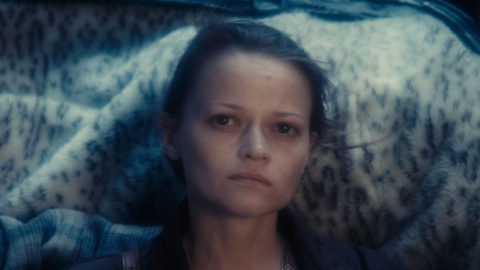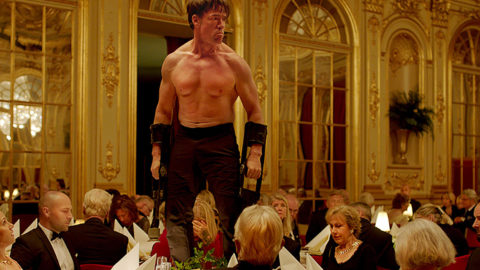By Nicolas Rapold in the July-August 2017 Issue
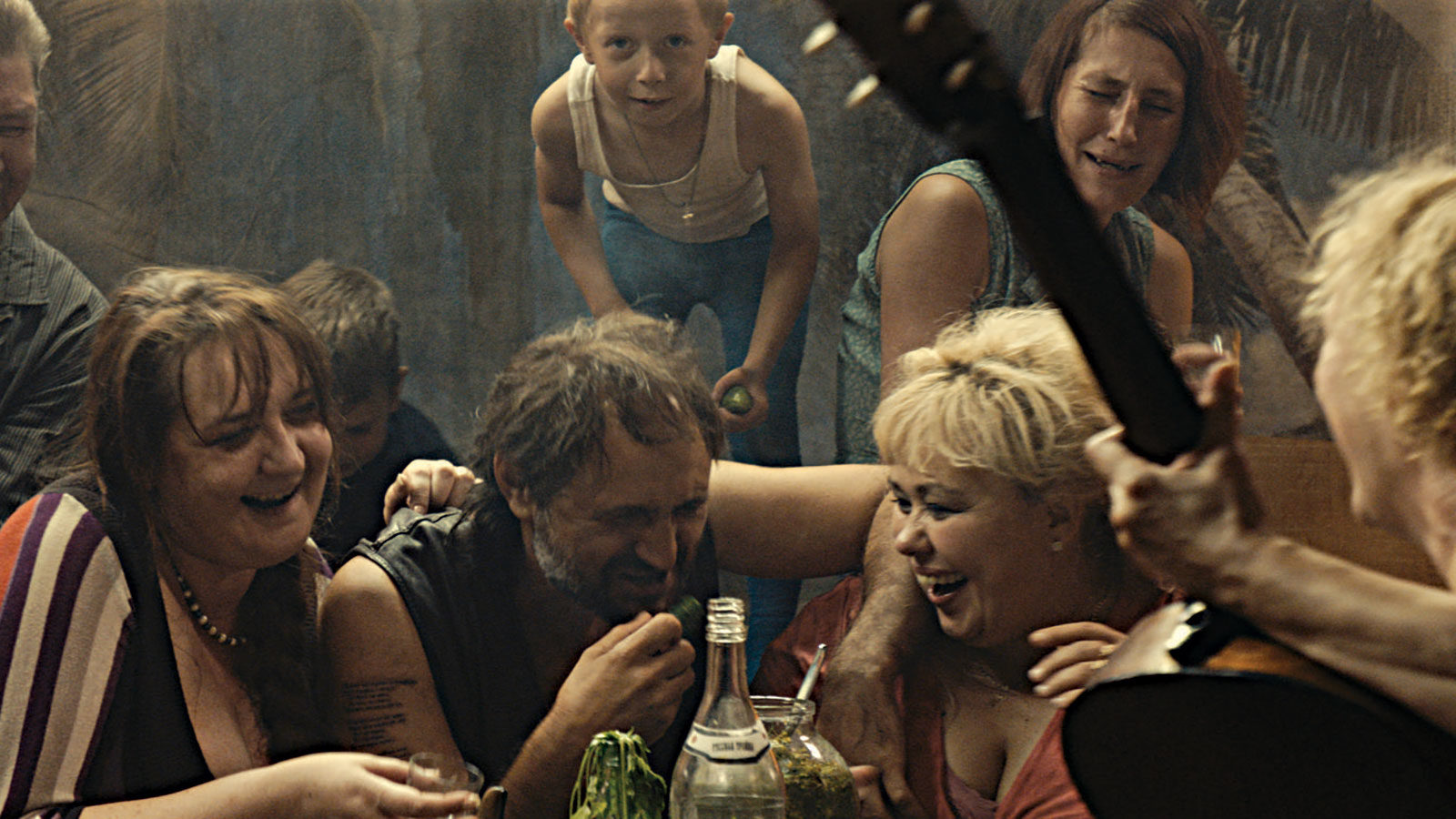
Catastrophes on Parade
The Cannes lineup vied for attention with current events and old habits of brilliance
Considering that the barrage of bad news out of Washington reaches you no matter what country you’re in, going to Glamorous Cannes certainly did not feel like a vacation from reality. Keeping up with the latest presidential crisis or gaffe du jour was like carrying around a baby monitor transmitting the sounds of your house on fire. “Yes, there it is—still on fire. Off to the Lumière I go!”
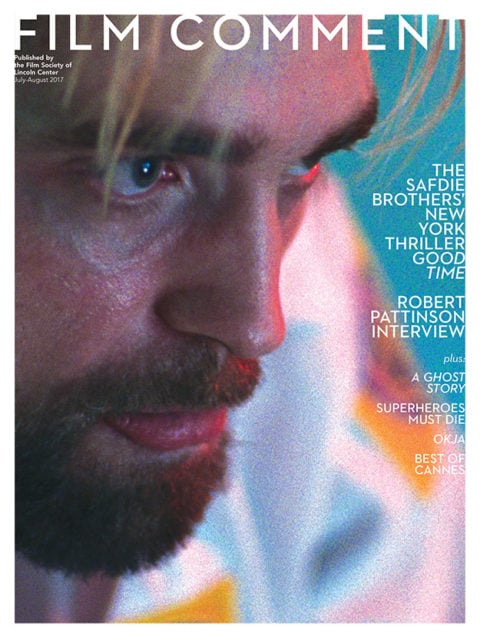
From the July-August 2017 Issue
Also in this issue
In the immediate terms of festivalgoing, one result was that—next to the litany of venality and cruelty described in Washington Post or New York Times news alerts—envelope-pushers looked tame and minor movies could feel pretty darned minor. And perhaps it was the conditioning of world events, but more and more movies felt built around Messages and Issues, a sensation I associate more with Sundance and Toronto than the go-for-broke, artistic-risk-for-its-own-sake ideals the sentimental among us would still like to associate with Cannes. There was the reliable cadre of Experimenters at it again, those directors who wish to sit you down, set a mechanism in motion, and demonstrate something to you. Ruben Östlund put a clueless museum director through his paces in The Square and made fun of silly old art and its pretensions (winning the Palme for his troubles); the ageless highlander of gotcha flagellation, Michael Haneke, began and ended his Happy End with damning cell-phone footage (“the Haneke touch,” my seatmate called it); Yorgos Lanthimos, a Hanekette, made Teorema except with a mush-mouthed teenager who causes people harm; and Andrei Zvyagintsev’s bourgeois-bashing Overdetermined Title of the Year Winner Loveless showed how people won’t get off their fucking phones in Russia, either (though Zvyagintsev did check his own phone during an interview with me).
Not that there weren’t finer points to each of these films, and formidable voices in support. But critical praise at Cannes also comes in its own genres. Loveless gets its serious-minded, dutiful, ritual respect for its serious-minded, dutiful, ritual efforts. The new Bruno Dumont picture, Jeannette: The Childhood of Joan of Arc, gets the tone of “It’s just so crazy—I can’t even describe it, it’s bonkers, you can’t believe it.” (It’s a low-budget musical with amateurs. Full stop.) Sean Baker’s The Florida Project, despite having its world premiere at Cannes, was spoken of in Sundance-esque terms of buzzy bedazzlement. Good movies (Arnaud Desplechin’s Ismael’s Ghosts, Todd Haynes’s Wonderstruck) were dismissed for reasons that will make little sense a year from now; deficient movies (Michel Hazanavicius’s Redoubtable, Lynne Ramsay’s You Were Never Really Here) were praised as if people had taken the day off from writing critically; and preapproved, absolutely fine movies were, well, approved (Léonor Serraille’s award-winning Jeune femme).
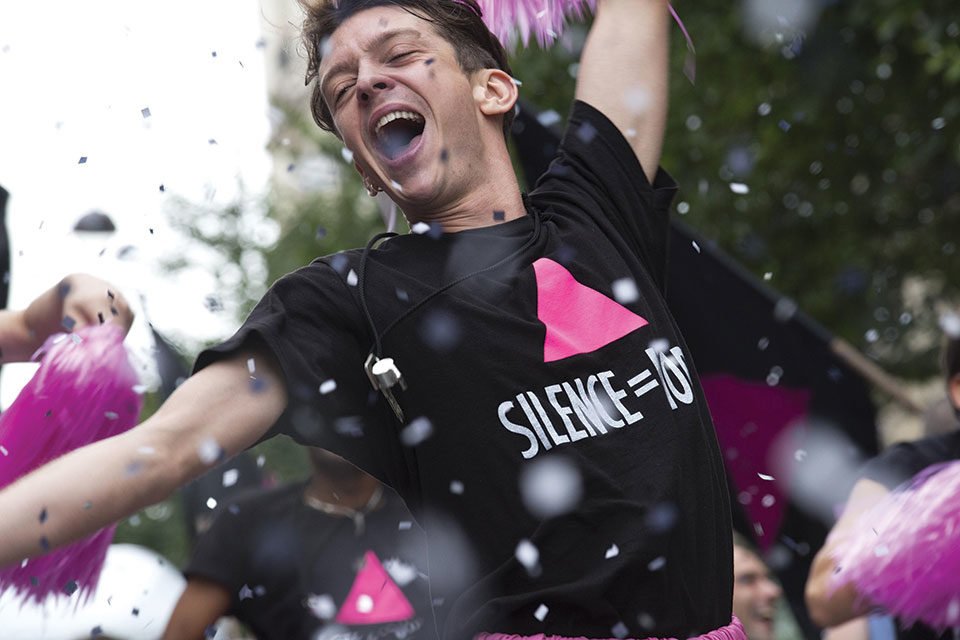
120 Beats Per Minute
Admittedly, one film that kept my eyes wide open might well fall into the category of cruel and unusual experiments. But Sergei Loznitsa gives his latest work, A Gentle Creature, a rude (in every sense) chaotic energy and a lunatic desperation that’s grimly comic when not stomach-churning. Inspired by a Dostoevsky short story, it follows a woman descending into the living hell of a prison town after traveling there to visit her incarcerated husband. To a certain extent, this is more of the Russia mess Loznitsa served up in his past dramas Old Joy and In the Fog. But making the documentaries Maidan and Austerlitz has resharpened his sensitivities to the broad canvas—both literally in crowd scenes and other ruckuses, and figuratively in using a prison town as a microcosm for a country where corruption and authority are so intertwined as to be indistinguishable. As the unnamed woman (Vasilina Makovtseva) makes her journey and gets roped into creepy schemes and offers, every conversation—whether between friends or strangers or bureaucrats or police—turns into a distracted melancholic ramble or a kibbutz-fest of wisecracks and gripes.
All this erupts in sprawling groups on buses or in post-office waiting rooms or drunken dens, raucously staged by Loznitsa working with DP Oleg Mutu and, just as vital, sound designer Vladimir Golovnitski, who fills out every picture with the voices of the people. As a comedic canvas, A Gentle Creature reliably surprises, bringing its own special energy to a Russian tradition of grotesque social panoramas (à la Aleksei German’s Hard to Be a God or Ilya Khrzhanovsky’s 4). Makovtseva’s stoic face endures it all, and as the film takes a turn into the carnivalesque and, ultimately, the infernal, at which point it lost some of the audience, it’s a rough landing but earned. Loznitsa concludes with a vision of Russia sleeping through waking catastrophe and encountering only more nightmares, revealing that the film hasn’t just been skating by on horrors; the pain is real.
That’s not to say every Russian film ended up as a discourse on the state of a nation—see “Release Me” in the print issue for my love for the dynamic debut feature Closeness. Nor should my introduction above imply that a film engaging with an actual historical subject means it induced eye-rolls. Case in point is 120 Beats Per Minute, which follows a group of French ACT UP members in the early 1990s before focusing on one as he falls ill from AIDS. Robin Campillo alternates between charged ACT UP meetings and actions; brief but key interludes in nightclubs; and quieter, tender scenes between two activists played by Arnaud Valois and Nahuel Pérez Biscayart, part of a seamless ensemble cast. The cinematic focus is on the rhythm and emotional flow rather than a timeline of victories and setbacks, and Campillo, who also co-wrote the screenplay, develops a moving sense of embodiment. He sidesteps the conventional storytelling of AIDS dramas in the film’s final third, and creates an elegant visual motif of particles suspended in the air (ethereal under a club’s spotlights, yet suggestive of much else without pressing the point). 120 Beats Per Minute—the title evoking heart rates and drum machines—won the Grand Prix, though there were some (including, perhaps, jury head Pedro Almodóvar, to judge from his comments at the post- ceremony press conference) who might’ve liked to see it get the Palme. In any event, of course, The Square won, with its director oddly proceeding to orchestrate his audience of observers and competitors in a group “scream of happiness—if I can direct you now, since I won this prize.”
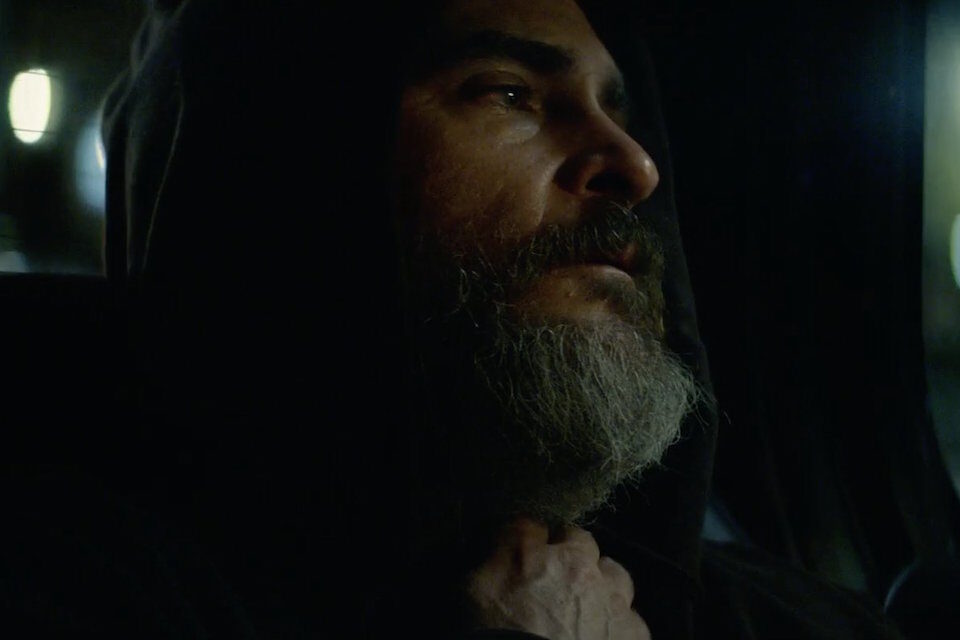
You Were Never Really Here
My colleagues have written about other major films at Cannes, and beyond that, it was often more of a parade of oddities than misfires, in my experience. Claude Lanzmann’s Napalm finds the monumental director retracing a love affair he had in North Korea circa 1958, emphasizing its lack of consummation and the other party’s shapely bosom, and comparing part of the experience to Shoah. Kornél Mundruczó, on the strength of White God, returned with a dopey Eurothriller, Jupiter’s Moon, that repeated the same dodgy CGI effect—a man floating in the air—like an aging circus performer lingering on his flourish. And Ramsay’s ultraviolent Joaquin Phoenix vigilante thriller You Were Never Really Here presented viewers with the conundrum—more and more common, to varying degrees, at Cannes—of a breathlessly completed film with the paint still wet and maybe a gear or two missing inside. Ramsay described working on the screenplay during shooting. Phoenix, who was effusive with praise for Ramsay in an interview, cited “a couple of very big changes to the story and the plot.” Both director and filmmaker won (speculative?) prizes, for acting and screenplay; the propulsive plotting didn’t make up for my dashed expectations for Phoenix to create another indelible role, and the preponderance of fill-in-the-psyche flashbacks certainly didn’t help (nor did the god-awful ending dialogue). And with that (and a diverting Polanski film), the 70th edition came to a close, out of breath but not wholly out of ideas.
From the soundtrack of The Meyerowitz Stories (New and Selected)



